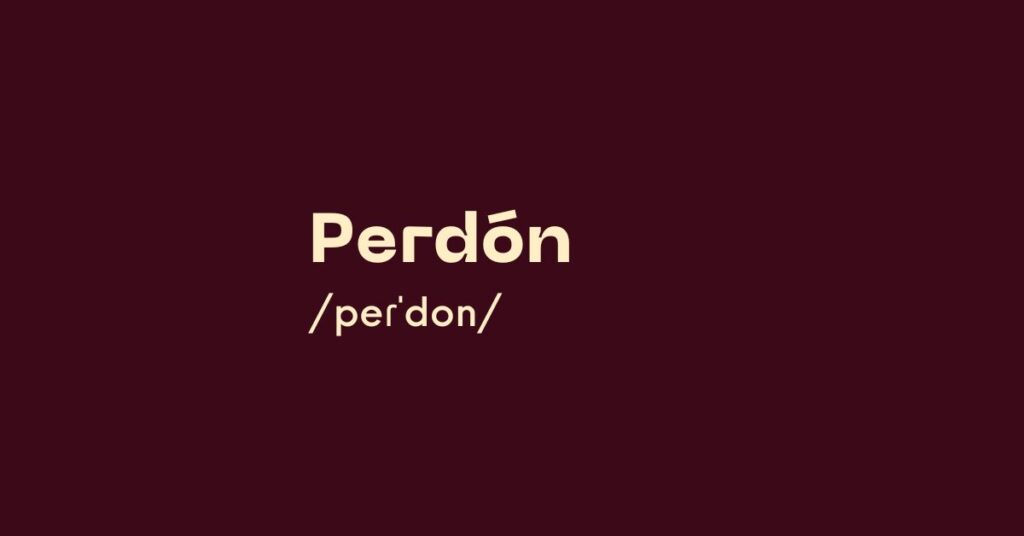Today’s Spanish word of the day is “perdón”.
It’s a masculine noun meaning “forgiveness”, “pardon” or “sorry”. It can also mean “excuse me”, especially when getting someone’s attention before asking them a question.
“Perdón” is often used as a polite way of apologizing or excusing oneself, for example:
- Perdón, no te vi. – Sorry, I didn’t see you.
- Pido perdón por lo ocurrido. – I ask for forgiveness for what happened.
It can also be used in religious contexts to refer to forgiveness.
The word “perdón” can be confused with the word “permiso”, as both can translate as “excuse me”. Both words are used to express politeness, but the key difference is that “perdón” is used to excuse yourself for something you have already done or to get someone’s attention, whereas “permiso” is used to ask for permission before or while doing something, for example while passing through people in a crowded room. Here are a couple of examples that show the difference:
- “¡Perdón! No te vi.” – “Sorry! I didn’t see you.”
- “Permiso, ¿puedo pasar?” – “Excuse me, may I pass?”
The word “perdón” comes from the Latin verbh perdonare, meaning “to give completely” or “to forgive”. The modern Spanish version of this verb is “perdonar”, meaning “to forgive”.
Example sentences
Te pido perdón por lo que dije ayer, no quise ofenderte.
I apologize for what I said yesterday, I didn’t mean to offend you.
Perdón, ¿me puedes decir cómo llegar al parque?
Excuse me, can you tell me how to get to the park?
Dile perdón a tu hermana.
Say sorry to your sister.
Si me hubieras pedido perdón, te habría perdonado.
If you had apologized, I would have forgiven you.
Perdón por ser tan increíble… es agotador.
Sorry for being so amazing… it’s exhausting.

